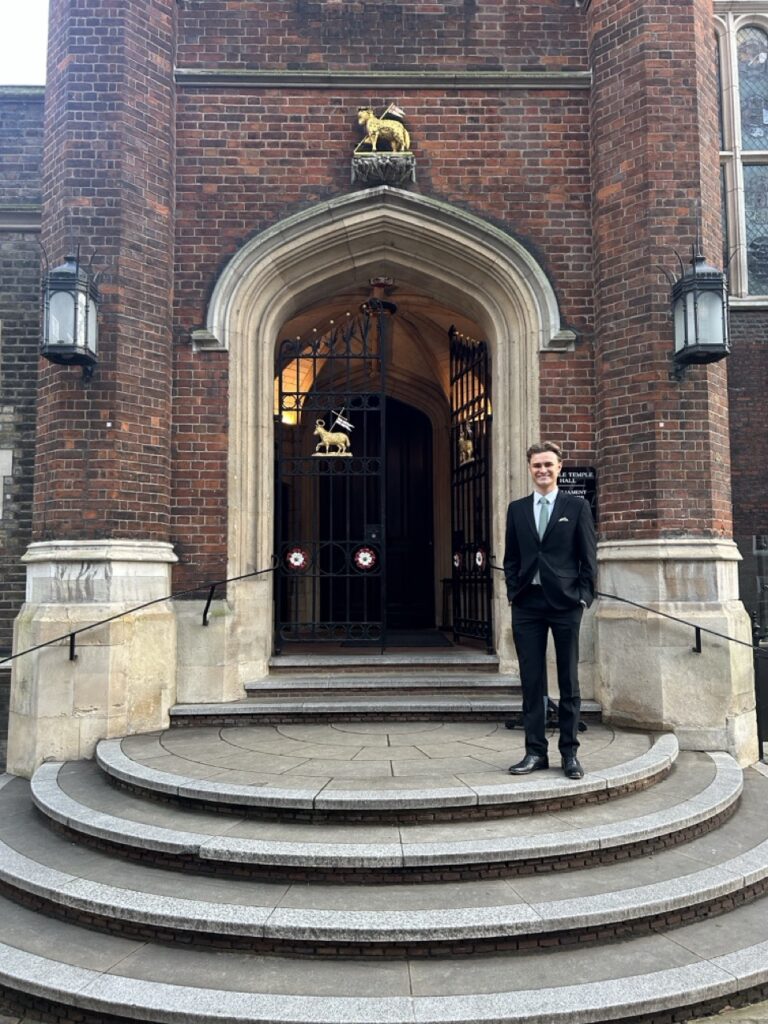
I can’t pretend my path towards a career at the Bar has been easy – and frankly, if anyone claims it has been for them, I’d be sceptical. But for someone like me, without A-levels, coming to the profession later in life after a career as a makeup artist, the journey has required more than just academic grit; it demanded the rebuilding of my confidence from the ground up.
That struggle began during my undergraduate law degree. Coming from the North East, I had never given much thought to my accent. It was just me. But when I moved further south for university, it quickly became clear that my voice was the first thing most people noticed – and not always kindly. I became hyper-aware of the way I spoke, constantly questioning whether I sounded intelligent enough, articulate enough, ‘lawyerly’ enough.
Even academic writing became a minefield. I noticed that many students wrote the way they spoke – fluidly and naturally. For me, that wasn’t an option. I had to write against my natural rhythm consciously. Still, I pushed through, graduated, and returned home to Newcastle to begin the Bar Course LLM.
That, too, was a baptism of fire. The daily workload was intense, but what challenged me most was not the reading or the preparation – it was advocacy (silly for a hopeful barrister, I know). Each session would fill me with dread. I knew what I wanted to say, but when the moment came, I froze. My confidence, already fragile, was slowly eroding. There were weeks when I seriously questioned whether I had it in me, not just to complete the course, but to survive a career at the Bar. If I were struggling to handle ten minutes of advocacy practice, how would I ever stand up in court?
Then came the chance to book Qualifying Sessions. For those unfamiliar, Bar students must complete ten sessions with their Inn before being Called. These sessions cover everything from ethics to networking to advocacy – and one caught my eye: an Advocacy Weekend in York, hosted by Middle Temple. Not only was it closer to home, but it also offered four QS points. The catch? A whole weekend of public speaking. As terrified as I was, I knew I had to push myself.
In the days leading up to the weekend, my anxiety grew. I didn’t know anyone else attending, and my old fears about my voice and background were bubbling back up. Then came the news: an amber weather warning was sweeping across the North East. I’m slightly ashamed to admit that part of me felt relieved – maybe it would be postponed. Perhaps the universe was letting me off the hook.
It wasn’t. And despite my best excuses, I knew I had to go.
‘Your train from Newcastle to York has been cancelled’ was not the notification I’d hoped to receive on the morning of my travel. Storm Eowyn had decided to make its unwelcome debut on what had been shaping up to be one of the most significant occasions in my educational and professional calendar to date.
After a cancelled train, a lift to Newcastle, a coach to Leeds, and a bus to York, I finally arrived at the hotel – very tired, very hungry, and very, very late. I was mortified to walk into the dinner hall knowing everyone had already eaten. But to my relief, I was met with warm smiles and a welcome spot at the table. I shared my travel saga, and one fellow attendee joked that delayed trains and travel chaos were essential training for the Bar. ‘Congratulations,’ they said, ‘you’ve had your first day as a barrister.’ We laughed, and I ate dinner, and headed to my room to read through the papers for the next morning.
The next day, something unexpected happened: I enjoyed class. Really enjoyed it. The environment was supportive, the tutors encouraging, and there was no sense of judgement. Questions were welcomed, and the room was filled with people from a wide range of backgrounds – some of whom spoke like me and shared the same anxieties I had carried for years. It didn’t matter where we were from or how we sounded; what mattered was our commitment to learning and improving. The tutors shared with us their personal experiences, moments where they too had felt nervous and lacking confidence and reassured all of us that it is not only expected, but completely normal. With each passing session, we practised. We stood up, we spoke, we sat down, we stood up, we spoke, we sat down, and each time it felt just a little less daunting.
Then came the final exercise of the weekend: closing speeches. I’d never delivered one before, and the anxiety returned. We were split into two teams, prosecution on one side and defence on the other. The task was that someone would start the speech, with each person picking up from where the other person left off, working together to deliver a seamless speech from start to finish. When my turn came, I had to think on my feet. It was the first time I had spoken in front of a room of that many people, and it was strange to hear my voice projected across such a big room.
Without realising it, I’d done the one thing I’d been afraid to do, and it didn’t kill me!
Looking back, I can honestly say that if it weren’t for the support of the other students, the encouragement of the tutors and the gentle but deliberate push from Middle Temple to step outside my comfort zone, I’m not sure I’d be writing this now, almost at the end of my Bar Course. I’m not even sure I’d have made it through the second term.
Without sounding too cliché, that weekend changed everything. I returned home feeling, for the first time, like I could actually do it. I began the second term of my course with renewed confidence.
The legal profession is often portrayed as a narrow path, accessible only to those who tick certain boxes. But what I found that weekend was a melting pot of individuality. It turns out that the things I once thought held me back – my accent, my age, my unconventional background – are part of what will make me a better advocate.
When people ask me about my path to becoming a barrister, I often say it has been characterised by people taking a chance on me. Whether it was the panel that interviewed me to attend university or the first chambers to offer me a mini-pupillage, I have been consistently met with people who recognised something in me that I didn’t see in myself. That kindness, typical of Middle Temple, has been awarded to me on many occasions, from receiving the Queen Mother Scholarship to the warm smiles at my late arrival to dinner.
People from outside the profession often ask me what the purpose of an Inn of Court is. For me, I will show them this article. There is immense comfort in knowing that for the rest of my career, however long or short it may be, I am part of a community that genuinely wants to see me succeed.
So, to anyone reading this who recognises themselves in my story, if you’re doubting yourself, if your voice shakes, if your train gets cancelled and your confidence is on the floor, I have one piece of advice: get on the coach. Arrive late to dinner. Find your people.
By Bailey Kendal

Bailey Kendal graduated from the University of Warwick in 2024 and is currently completing the Bar Course LLM at Northumbria University. A Queen Mother Scholar and recipient of the Blackstone Entrance Exhibition from Middle Temple, Bailey is committed to a future career at the Bar.

